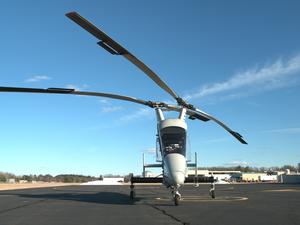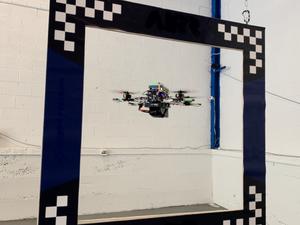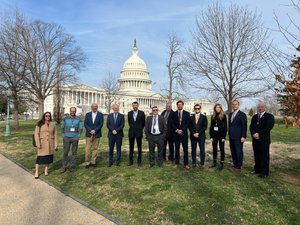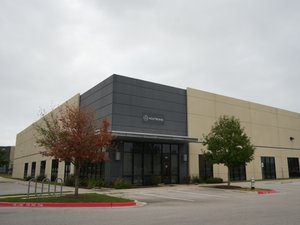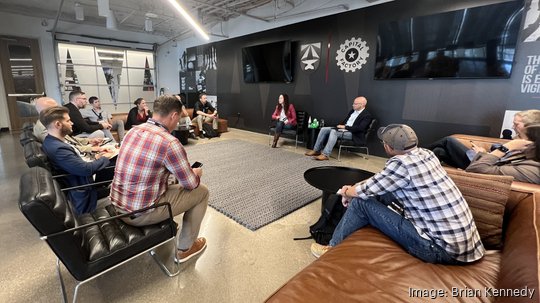
Pittsburgh's roots are heavily ingrained in the manufacturing of equipment for the second World War. As warfare has changed, so has that manufacturing, and for years, the city has pivoted to other industries. But now, some local experts say that the future of warfare could be the future of Pittsburgh.
A coalition of over a dozen local companies traveled to Austin this week to participate in the Fed Supernova, an expo that connects entrepreneurs with government agencies and industry leaders with the goal of earning contracts. This is the first year that the Pittsburgh Defense Robotics and Innovation Coalition, which is supported by the Pittsburgh Technology Council, will have its own booth. Additionally, the coalition had a one-on-one meeting with the directors of several key groups, including the Navy's venture capital arm and the Army Applications Lab.
"This is an opportunity for us to be down here and show our wares," Mike Embrescia, CDO of Lawrenceville-based Carnegie Robotics, said. "Walking up and down the lanes, people know who we are. People know what's going on in Pittsburgh."
The travel was backed financially in the form of stipends from the Pittsburgh Regional Alliance, an economic development organization. Organizing was done by the Pittsburgh Technology Council. Olga Pogoda, COO of East End-based KEF Robotics, said that the PTC's Defense Coalition is "one of the most useful assets that has been created for Pittsburgh" and credited PTC SVP of Operations and Government Affairs Brian Kennedy for its success.
"I can't tell you how many connections I've made and contract wins that we've had because of people that [Kennedy] connected me to," Pogoda said. "This defense coalition that Brian has created and the Pittsburgh Tech Council has supported, I feel, is a game changer for Pittsburgh. It's going to continue to grow and bring a ton of really cool investment into the region."
Hanging over the expo are two major conflicts that have dominated news cycles — war between Russia and Ukraine, and war between Israel and Hamas. These conflicts, as well as possible broader repercussions of them, have influenced how contracts are awarded. For example, KEF CEO Fraser Kitchell credited "lessons coming out of Ukraine" as contributing to the Air Force's decision to award the company a $1 million contract earlier this year.
"Looking around the world right now is super scary and one of the things that our company is really interested in is how to reduce the number of casualties in a number of ways," Pogoda said. "With a lot of these technological developments, using robots instead of humans helps to save a ton of lives... If we can strike the right targets and cause less damage, that's also a win, if we can prevent hurting civilians. I think that's where robotics is headed. Less and less we're going to see a full out war."
But alongside the technological development comes regulatory hurdles. Industries with higher regulatory standards, such as health care, have struggled to keep up with the pace of adoption, and the military is no exception. Now, the military is facing that hurdle head on — finding the balance of keeping pace with less regulated adversaries while maintaining standards.
"We have adversaries that, some of the countries are rather dictatorial in nature so they don't have the types of checks and balances that the U.S. does, or the red tape that the U.S. does," Embrescia said. "When they want to develop something or build something, they just build it and our adversaries, a lot of them, like China, in some respects, they can go faster and shoot farther... we go a little bit slow because our processes are very, very, very, very deep."
Jeremy McHugh, CEO of Preamble, a local startup that mitigates risk for AI implementation, said that because several of the leading AI models are open source, anyone can utilize them. He said that the military is well-aware of the need to implement newer technologies, but that many are less aware of how to and how to train members to properly utilize the tech.
"They're like sitting in the market, looking at stuff on the shelves that would be so helpful, but they get it into their office or the right units that should be using it and then there's all the training that has to go with it and the processes that are updated," McHugh said. "The military is very particular about using processes and procedures and are very thorough with how everything is done."
McHugh said that the military will need to "adapt their procedures" for AI. He compared AI implementation to traditional software integration, which a lot of the procedures are built around. For example, a standard human resources system is "very static" while an AI model would necessitate more team members and more regulatory guidance.
Embrescia said that while it would be beneficial for some regulations to be lifted, "you need regulations, you need scorecards and you need testing limits for sure, because if not, it would be the wild west out there."
But a key possible regulation on the tech remains up in the air — how much autonomy is permissible? In November, Biden was set to sign a deal with Chinese President Xi Jinping in November to issue a complete ban on autonomous weapons. That ban never came to fruition.
The possible deployment of a fully autonomous system has divided policy makers and is controversial. Deputy Secretary of Defense Kathleen Hicks has repeatedly said that autonomous combative aircraft technologies will be needed to remain competitive, while U.N. Secretary-General Antonio Guterres has called the tech "a moral line that we must not cross."
Generally, the agreement for now is that there must be a "human in the loop," something echoed by both Pogoda and McHugh.
"With a lot of these, there's still going to be a human in the loop, meaning that the final decision is still being made by a person, and probably a team of people," Pogoda said. "There's distance, so we can save a lot of our soldiers lives by using various types of robots on the battlefield that can assess a situation and do a mission on their own but [are designed to] not cause any harm without a team behind it making those decisions."
"There's definitely going to be a lot of creation from the private sector and research at academic labs that could be super scary to implement in the military process but fortunately, it's not that easy to plug it in," McHugh said. "I don't think that the military should ever have something where it's completely autonomous for taking action."
